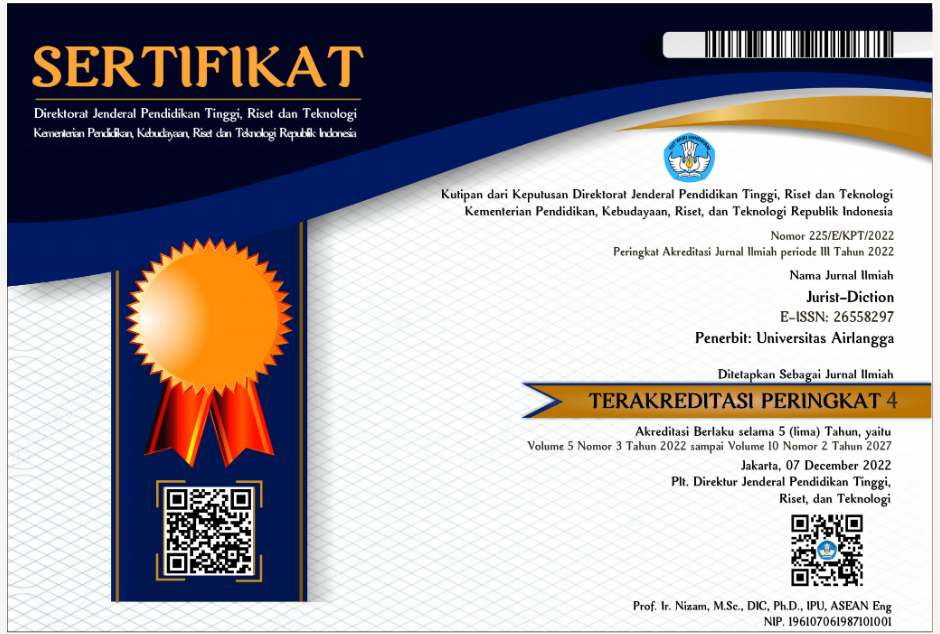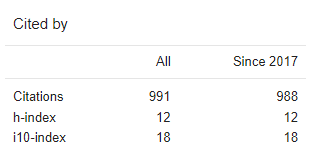Questioning Environmental Rights: The Role of NGOs in Horizontal Environmental Disputes in South Africa and Indonesia
Significant gaps in environmental protection continue to arise from the combined pressures of climate change, human rights challenges, and institutional weaknesses. This paper compares the distinct roles of non-governmental organizations (NGOs) in addressing environmental and climate change disputes in Indonesia and South Africa. Employing a comparative legal analysis of each country’s horizontal human rights framework and relevant case studies, the study identifies notable divergences in NGO strategies. In South Africa, the direct horizontal application of rights enables NGOs to pursue strategic litigation that strengthens corporate accountability. By contrast, Indonesia’s indirect horizontal application compels NGOs to rely more heavily on public advocacy, mobilization, and judicial interpretation to confront both state and private actors. The paper concludes that NGOs play a supplementary role by providing expertise and resources to enhance policy and enforcement. It argues that adopting a direct horizontal application, as in South Africa, could strengthen Indonesia’s capacity to hold multinational corporations directly accountable for environmental harm.
Abdul Rahman, Sugianto, Dudung Hidayat, ‘Protection Of Human Rights In The Indonesian Constitution: An Analysis Of The 1945 Constitution’ (2024) 2 Journal of Law Sciences (Legisci).
Amnesty Indonesia, “Don’t Bother, Just Left Him Die”: Killing With Impunity In Papua (Amnesty International Indonesia 2018).
Ashgar Leghari v Federation of Pakistan (2015) W.P. No. 25501/2015 (Lahore High Court).
Brian J Preston, ‘The Evolving Role of Environmental Rights in Climate Change Litigation’ (2018) 2 Chinese Journal of Environmental Law.
Charles R. Beitz, The Idea of Human Rights (Oxford University Press 2009).
Christian Tomuschat, Human Rights : Between Idealism and Realism (Oxford University Press 2008).
Conrado M. Cornelius, ‘Climate Change Litigation in Indonesia: The Good, the Bad, &the Ugly’ African Perspectives On International Climate Change Law Symposium (Center For International Law, National University Of Singapore (CIL-NUS)).
‘Earthlife Africa Johannesburg v Minister of Environmental Affairs and Otherr’ (2017) 2 Southern African Legal Information Institute.
Eleni Frantziou, ‘Horizontal by Design: A Systematic Analysis of the Application of Human Rights to Private Actors in the Text of World Constitutions’ (unpublished, 27 November 2024) accessed 4 December 2024; Brian Sang YK, ‘Horizontal Application of Constitutional Rights in Kenya: A Comparative Critique of the Emerging Jurisprudence’ (2018) 26(1) African Journal of International and Comparative Law <https://doi.org/10.3366/ajicl.2018.0217> accessed 25 November 2024.
Fakhri Fadlurrohman, ‘Sangihe Gold Mine Rejection Action (Aksi Penolakan Tambang Mas Sangihe)’ (Kompas, 2022) <https://www.kompas.id/baca/foto/2022/11/17/aksi-penolakan-tambang-emas-sangihe> accessed 05 December 2024
Francesco Francioni, ‘International Human Rights in an Environmental Horizon’ (2010) 21 The European Journal of International Law.
Greenpeace Southeast Asia, ‘South Sumatran Residents Sue Plantation Companies Over Peatland Smoke Haze’ (Greenpeace, 2024) <https://www.greenpeace.org/southeastasia/press/66462/south-sumatran-residents-sue-plantation-companies-over-peatland-smoke-haze/> accessed 15 January 2025.
‘Holding Corporations Accountable for Damaging the Climat’ (2014) Environmental Law Alliance Worldwide [30-35].
Hugh Collins, ‘On the (In)compatibility of Human Rights Discourse and Private Law’ (2012) LSE: Law Society and Economic Working Paper 7/2012.
Igor Oneill, ‘Hearings Begin in South Sumatra’s Peatland Smoke Haze Lawsuit’ (Greenpeace, 2024) <https://www.greenpeace.org/southeastasia/press/66602/hearings-begin-in-south-sumatras-peatland-smoke-haze-lawsuit/> accessed 15 January 2025.
Irman Putra and Arief Fahmi Lubis, ‘Human Rights Protection under the Indonesian Constituion: Progress and Challenges’ (2024) 2 West Science Law and Human Rights.
Jennifer Corrin, ‘From Horizontal And Vertical To Lateral: Extending The Effect Of Human Rights In Post Colonial Legal Systems Of The South Pacific’ (2009) 58 International and Comparative Law Quarterly.
John H. Knox, ‘Horizontal Human Rights Law’ (2008) 102 American Journal of International Law.
Karin Nur Secha, ‘After the Ministry of Energy and Mineral Resources, the Residents of the Canadian Embassy Protest Reject the Mine in Sangihe (Usai Kementerian ESDM, Warga Demo Kedubes Kanada Tolak Tambang di Sangihe)’ (Detik, 2022) <https://news.detik.com/berita/d-6167190/usai-kementerian-esdm-warga-demo-kedubes-kanada-tolak-tambang-di-sangihe> accessed 05 December 2024.
Kumaravadivel Guruparan and Harriet Moynihan, Climate Change and Human Rights-Based Strategic Litigation (Chatham House, 2021).
Laurie S Wiseberg, ‘The Role of Non-Governmental Organizations (NGOs) in the Protection and Enforcement of Human Rights’ in Janusz Symonides (ed), Human Rights: International Protection, Monitoring, Enforcement (Routledge 2003).
Louis B. Kimmelman and Edna Sussman, ‘2017 Fordham International Arbitration & Mediation Conference Issue: Introduction’ (2018) 41 Fordham International Law Journal.
Lottie Lane, ‘The Horizontal Effect of International Human Rights Law in Practice: A Comparative Analysis of the General Comments and Jurisprudence of Selected United Nations Human Rights Treaty Monitoring Bodies’ (2018) 5 European Journal of Comparative Law and Governance.
Maria Nassali, Beating the Human Rights Drum: Applying Human Rights Standards to NGOs’ Governance (Pretoria University Law Press 2015).
Michel Tshiyoyo, ‘The Changing Roles of Non-Governmental Organizations in Development in South Africa: Challenges and Opportunities’ in Vito Bobek and Tatjana Horvat (eds), Global Perspectives on Non-Governmental Organizations (IntechOpen 2023).
Nigel D. White and others, ‘Blurring Public and Private Security in Indonesia: Corporate Interests and Human Rights in a Fragile Environment’ (2028) 65 Netherlands International Law Review.
Ottawa, ‘Indonesian Women Win Legal Victory to Protect Small Island Home From Canadian Baru Gold’ (MiningWatch Canada, 2022) <https://miningwatch.ca/news/2022/6/10/indonesian-women-win-legal-victory-protect-small-island-home-canadian-baru-gold> accessed 05 December 2024.
Pia Rebelo & Xavier Rebelo, Rights-Based Climate Change Litigation Against Private Actors Kim Bouwer et.al. (eds) Climate Litigation and Justice in Africa (Bristol University Press 2024).
Pratima Desai and Eric Onstad, 'Pressure groups sue LME for allowing trade of "polluting" Indonesian metal' (Reuters, 8 February 2024) <https://www.reuters.com/markets/commodities/pressure-groups-sue-lme-allowing-trade-polluting-indonesian-metal-2024-02-08/> accessed 10 January 2025 and London Mining Network, 'LME Press Release' (February 2024) <https://londonminingnetwork.org/wp-content/uploads/2024/02/LME-Press-Release.pdf> accessed 10 January 2025.
Ravi Menon and Chiara Zilioli, Climate-Related Litigation: Recent Trends and Developments (Network for Greening the Financial System 2023).
Shidarta, Stijn Cornelis van Huis, Eko Riyadi, ‘How Do Indonesian Judges Approach Human Rights in Private Law Cases? A Comparative Exploration’ (2022) 15 Journal of East Asia and International Law.
Sutan Sorik dan Laely Nurhidayah, ‘The Role of NGOs in Environmental Governance in Indonesia’ (2024) 21 Jurnal Konstitusi, Published by The Registrar and Secretariat General of the Constitutional Court of the Republic of Indonesia.
Stefan Theil, Toward the Environmental Minimum-Environmental Protection Through Human Rights, (University of Oxford 2021).
Syarifaatul Hidayah, ‘State Responsibility in Protecting Human Rights: An International Legal Perspective’ (2023) 2 International Law Discourse in Southeast Asia.
Tamara Meshel, ‘International Arbitration: The New Frontier of Business and Human Rights Dispute Resolution’ (2021) 44 Dalhousie Law Journal.
The Guardian ‘Sharp rise in number of climate lawsuits against companies, report says’ (The Guardian, 2024) < https://www.theguardian.com/environment/article/2024/jun/27/sharp-rise-in-number-of-climate-lawsuits-against-companies-report-says> accessed 10 January 2025.
Urgenda Foundation v The State of the Netherlands (2015) HAZA C/09/00456689 (District Court of The Hague).
Yultrina Pieter and others v Head of the Department of Investment and Integrated One-Stop Service North Sulawesi and others [2022] Decision No. 57/G/LH/2021/PTUN.Mdo (Manado State Administrative Court, 22 June 2022).
Copyright (c) 2025 Fersanda Batrysia, Indria Wahyuni

This work is licensed under a Creative Commons Attribution 4.0 International License.
Jurist-Diction (P-ISSN 2721-8392, E-ISSN 2655-8297), published by Universitas Airlangga, is licensed under the Creative Commons Attribution 4.0 International License (CC BY 4.0).
This license permits users to:
- Share – copy and redistribute the material in any medium or format;
- Adapt – remix, transform, and build upon the material for any purpose, including commercial use.
These freedoms are granted under the following conditions:
Attribution – You must provide appropriate credit, include a link to the license, and indicate if any changes were made. This may be done in any reasonable manner, but not in a way that suggests the licensor endorses you or your use.
No additional restrictions – You may not apply legal terms or technological measures that restrict others from exercising the rights granted under the license.
Note: As of Volume 5, No. 1 (2022), Jurist-Diction has adopted the Creative Commons Attribution 4.0 International License (CC BY 4.0), replacing its previous license (CC BY-NC-SA).


















